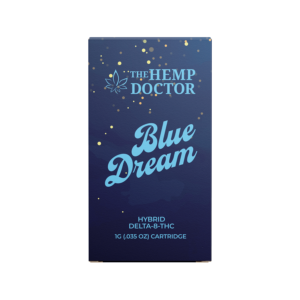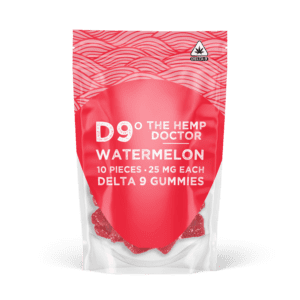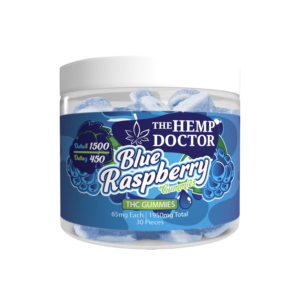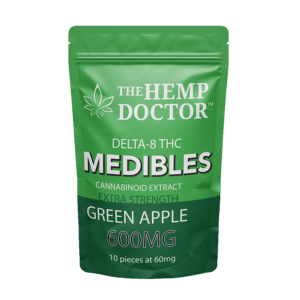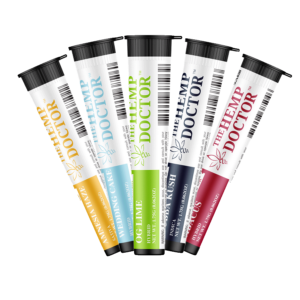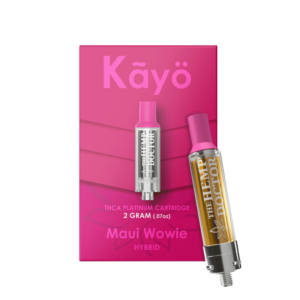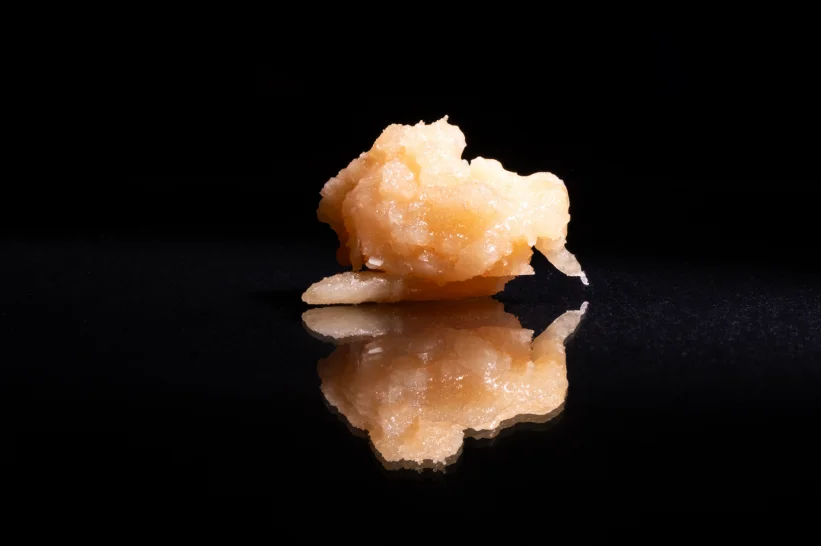
Among cannabis concentrates (like Delta 8 concentrates), wax stands out for potency, versatility of usage, and flavor. Naturally, multitudes of its fans want to know its costs, specifically, “how much is a gram of wax.”
In this state-by-state guide on the real cost of wax, we’ve scoured dispensary prices across states and made a list of the average price of a gram of wax. Whether you’re shopping locally or online, it pays to know the real costs to prevent rip-offs.
Let’s dive in.
🔑 Key Takeaways
- $51.89 is the average cost of a gram of wax in the US
- Oregon and Washington are the states with the cheapest wax at $10 per gram, while Maryland, North Dakota, and Pennsylvania have the most expensive at $100.
What Does A Gram of Wax Weigh?
In a weighing scale, a gram of wax will read exactly as “one gram” or 1 gram. A gram of wax is essentially equivalent to one gram of any substance or material under the same gravitational conditions.
There are several versions and types of wax, and their properties and contents are determined by their properties. However, no matter how vastly different these variations are, these do not affect the mass of a wax. Thus, a gram of wax remains one gram.
What Does A Gram of Wax Look Like?
A gram of wax looks like a small coin or penny, although its shape is not always the same, as waxes can be soft or malleable. One gram of wax may look small but it’s a highly potent concentrate with more THC per gram compared to the classic cannabis bud.
See here the image posted by a Reddit user depicting a gram of wax on a scale:
If it’s hard for you to gauge the weight of a wax just by eyeing it, get a scale instead to weigh the wax accurately.
How Many Dabs Is 1 Gram of Wax?
Dabbing refers to heating a cannabis concentrate (like weed wax) using a bong or similar device and inhaling its vapors. It’s hard to accurately foretell how many dabs there are in a gram of wax as every user is different, and not all wax has the same potency.
You can generally perform 10 to 40 dabs per one gram of wax. Beginners would get 40 or more dabs in one gram, and the most experienced users can perform 20 or fewer dabs in a gram of wax.
See here a table that tells the number of dabs per wax size in grams:
| Number of Dabs | Dab Size in Grams |
| 10 | 0.1 |
| 20 | 0.05 |
| 40 | 0.025 |
On Average, How Much Is A Gram of Wax in the US?
The cost of wax per gram in the US varies widely across states. Factors like local cannabis regulations, local taxes, demand, and supply dictate these jurisdictions’ rise and fall in concentrate taxes.
To determine the most accurate estimate, we calculated the average price of wax per gram by analyzing the average prices across all 50 states. The result? A nationwide average cost of $51.89 per gram.
The cheapest average price of wax per gram in the US is $10 sold in Oregon and Washington. Meanwhile, the most expensive wax per gram is $100 sold in states: Maryland, North Dakota, and Pennsylvania.
Using the $51.89 per gram average, here’s the table plotting wax prices in half a gram to 10 grams.
| Weight in Grams | Price ($) |
| Half | $25.9 |
| 1 | $51.89 |
| 2 | $103.78 |
| 3 | $155.67 |
| 4 | $207.56 |
| 5 | $259.45 |
| 6 | $311.34 |
| 7 | $363.23 |
| 8 | $415.12 |
| 9 | $467.01 |
| 10 | $518.9 |
What Is The Average Price Of Wax Per State In A Gram?
Take a closer look at this table to see the price difference of one gram of wax in each state. A column is dedicated to tagging the legal status of the concentrate in each state.
| State | Average Cost per Gram of Wax ($) | Legal Status of Weed Wax |
| Alabama | $50-$70 | For medical purposes only |
| Alaska | $20-$40 | Legal |
| Arizona | $20-$50 | Legal |
| Arkansas | $95 | Only for medical use |
| California | $35.99-$45 | Legal |
| Colorado | $20 | Legal |
| Connecticut | $30-$60 | Legal |
| Delaware | $50-$60 | Legal |
| Florida | $65 | Only for medical use |
| Georgia | $40 | Only for medical use |
| Hawaii | $45 | Only for medical use |
| Idaho | – | Illegal |
| Illinois | $40 | Legal |
| Indiana | $35-$60 | Only for medical use |
| Iowa | $40-$60 | Only for medical use |
| Kansas | $40-$70 | Legal only for CBD |
| Kentucky | $30-$50 | Only low-THC cannabidiol |
| Louisiana | $40-$80 | Only for medical use |
| Maine | $30-$40 | Legal |
| Maryland | $50-$100 | Legal |
| Massachusetts | $50-$60 | Legal |
| Michigan | $20-$50 | Legal |
| Minnesota | $30-$40 | Legal |
| Mississippi | $50-$80 | Only for medical use |
| Missouri | $30-$50 | Legal |
| Montana | $40-$70 | Legal |
| Nebraska | – | Illegal |
| Nevada | $30 – $60 | Legal |
| New Hampshire | $50-$80 | Only for medical use |
| New Jersey | $40-$60 | Legal |
| New Mexico | $50-$80 | Legal |
| New York | $25-$40 | Legal |
| North Carolina | – | Illegal |
| North Dakota | $40-$100 | Only for medical use |
| Ohio | $70-$100 | Legal |
| Oklahoma | $20-$25 | Only for medical use |
| Oregon | $10-$60 | Legal |
| Pennsylvania | $55-$100 | Only for medical use |
| Rhode Island | $50-$75 | Legal |
| South Carolina | $45-$80 | Only for medical use using CBD oil with low THC |
| South Dakota | $60-$90 | Only for medical use |
| Tennessee | $50-$80 | limited medical purposes |
| Texas | – | Illegal |
| Utah | $50 | Only for medical use |
| Vermont | $40-$70 | Legal |
| Virginia | $35-$60 | Legal under strict conditions |
| Washington | $10-$60 | Legal |
| West Virginia | $50-$80 | Only for medical use |
| Wisconsin | – | Illegal |
| Wyoming | – | Illegal |
Weed Wax Pricing Factors
Like any commodity in the US, the price of concentrates like wax is a combination of several market movements within the cannabis industry. Here’s a brief introduction of some of the most significant pricing factors that come into play:
Supply and Demand
Weed wax pricing is heavily influenced by the law of supply and demand. When the cost of producing wax is high, that cost is passed on to the consumers, who will have to pay more for a gram of wax.
Higher final prices for wax products are expected in states with high labor costs, taxes, and strict manufacturing standards.
Additionally, the level of cannabis market saturation in a market plays a role in the final price. In states like Colorado and California that produce a lot of wax supply, stiff competition lowers final prices. Opposite to this are states with few licensed producers, pushing prices higher due to scarcity.
| The Law of Supply and Demand The given supply and cost of wax are based on demand, or how many and how much people are willing to pay for it. When the demand for wax is high in a state or locality, the price for that good naturally increases, but when demand is low, the price drops as a reaction. |
Regulatory Environment
States with fully legalized recreational and medical cannabis markets typically have lower wax prices compared to states without any cannabis programs in place. This is due to the considerable reduction in legal risks and a strong, established supply of cannabis chains.
Cost of Innovation and Extraction Methods
Weed wax is a concentrated form of cannabis produced using sophisticated extraction and manufacturing methods. Advanced technologies result in a higher final price but yield a high-quality product packed with high THC content, good terpene retention, etc.
Macroeconomic Trends
Rising operational costs due to inflation in labor, raw materials, etc., can temporarily increase prices. Another knee-jerk reaction to pricing can be attributed to sudden economic downturns where people’s spending power is low. This can lead to pricing adjustments.
Distribution Channels
You may have already experienced this, where you see a price disparage between dispensaries and wholesale markets for the same wax product. Let’s zoom in on these two distribution channels to see how their unique business models affect pricing.
Dispensaries (Direct-to-Consumer): Stores that sell directly to consumers have better wax pricing structures because of the nonexistent cause in intermediary services like delivery.
Wholesale: Stores offering products at wholesale prices have lower costs per gram compared to regular retail pricing because you’re buying in bulk. The more units of product you buy, the lower the price per unit.
Breakdown Of The Cost
Weed wax production is no small feat. It involves several intricate steps, each contributing to manufacturing costs. From sourcing raw materials to packaging, we’ve gathered the average pricing cost of each production step to break down the cost of waxes.
Based on the production factors below, producing a gram of wax can range from $5-$15 for simpler processes and $20-$40 for high-end concentrates.
Raw Materials (Cannabis Trimmings + Solvents)
The average cost of wholesale cannabis trimmings sold for extraction in the US ranges from $200 to $1,000 per pound. Meanwhile, materials like butane and other solvents used for extraction have an average cost of $5 to $20 per gram of concentrate produced.
Extraction Process
Industrial extraction machines, such as CO2 or hydrocarbon systems, can cost between $50,000 and $500,000. This rough estimate doesn’t include operational costs, maintenance, and repair.
Post-Processing
Purification and refinement average roughly $5 per gram of concentrates for standard processing to $10 per gram for highly refined concentrates. Moreover, mandated potency testing can cost $100-$500 per batch.
Packaging
Standard packaging for weed waxes in glass or silicone containers can cost $0.50 to $2 per unit. Meanwhile, custom-designed packaging can cost $3 to $5+ per unit.
Compliance and Licensing
License renewal per annum ranges from $5,000 to $100,000, depending on state and license type.
Tips For Scoring The Best Yet Affordable Dabs
Indulging in waxes shouldn’t break the bank. You can buy affordable dabs online and in physical stores without sacrificing quality. Here are some tips for purchasing waxes while keeping your budget intact.
1. Check Extraction Lab Sales
Many extraction labs directly sell “blemished” surplus inventory to customers at lower prices. These waxes still meet the quality standard set by the manufacturer; they just might have some minor defect, like a dent in their packaging.
2. Take Advantage of Off-Peak Seasons
Constantly monitor pricing drops during off-peak seasons like post-holiday sales or harvest seasons. During these period, most producers would sell out all of what’s left to their inventories to make room for new batches.
3. Check for “Fresh Frozen” Deals
Scour for online promotions on “fresh frozen” concentrates. These waxes are flash-frozen after harvest to preserve the cannabinoids and terpenes inside. To ensure freshness, producers make them as discounted items.
4. Utilize Subscription Boxes
Signing up to subscription boxes is the easiest way to get wax deals as almost all online cannabis shops has this feature.
| Did You Know? The Hemp Doctor Wholesale will introduce the “Tiered Sale” on Black Friday and Cyber Monday. Spend $499 and get 15% discount and up to 45% off on purchases over $1,500. |
FAQs
How much is a gram of wax in Colorado?
$20
How much is a gram of wax in California?
$35.99-$45
How much is a gram of wax in Denver?
$20 to $40
How much bud for 1 gram of wax?
It varies, but it typically takes about 3 to 7 grams of cannabis flower.
How long does a gram of wax last?
It depends on the user’s frequency. It can last weeks for light users and days for experienced dab users.
How much is a zip of wax?
A zip is 28 grams, so the cost will be roughly $1,400.
How much does THC wax cost?
$51
Are wax and dabs the same?
Dabs are the general term used to refer to waxes and other specific types of concentrates.
How much is a pound of wax?
A pound of wax is equal to 453.592 grams. So the cost would be $23,536.9.
How much THC is in wax?
It depends on the manufacturer, but waxes can contain from 60% to 90% THC concentration.
How much weed is equal to a gram of wax?
3 to 7 grams of cannabis flower.
What does a gram of wax weigh?
1 gram
How much is an ounce of wax?
The price can be anywhere between $400 to $1,200.
How much is a gram of wax vs weed?
A gram of wax ranges between $20 to $80, while a gram of weed is cheaper at $5 to $20.
